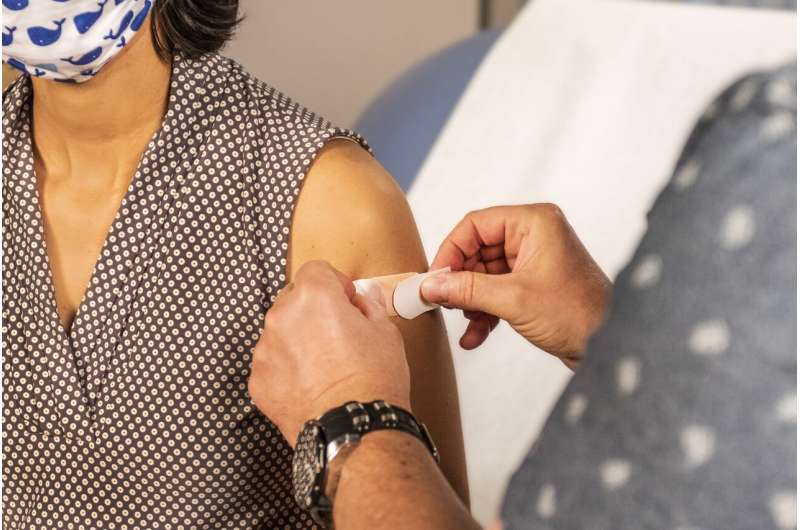Deficient communication around how to access COVID-19 vaccinations could be worsening vaccine hesitancy

People who seek information on how to get a COVID-19 vaccine get widely different answers from the people who handle COVID-19 information hotlines and electronic communications, and those inconsistencies may play a role in whether someone pursues getting vaccinated, according to newly published research by Vanderbilt University.
The research, posted by the journal Social Science & Medicine, reveals that responses from state health departments and major vaccination sites to people asking how to access vaccines are sometimes inaccurate and inconsistent, and that Latinx persons in particular face hardships in navigating the vaccine infrastructure.
Carolyn J. Heinrich, chair of the Department of Leadership, Policy, and Organizations and Patricia and Rodes Hart Professor of Public Policy and Education at Vanderbilt Peabody College of education and human development, co-authored the research, "An audit test evaluation of state practices for supporting access to and promoting COVID-19 vaccinations," with colleague Sayil Camacho, lecturer in leadership, policy, and organizations; and master's degree students Kaitlin Binsted and Shadlan Gale.
The researchers initiated a total of 612 interactions, spanning all 50 states, by phone and email, using a script to request information on how to get a vaccine. Two of the audit testers were of Latinx identity, and researchers found that responses from agency staff varied depending on a caller's race and language.
Some information provided by state health department or major vaccination site representatives was inaccurate or inconsistent with federal and/or state policy. A lack of adequate language translation services was frequently a barrier to the Spanish-speaking audit tester.
Now that restrictions and attitudes around COVID-19 are being relaxed, these findings bring new insight into how communication around accessing a COVID-19 vaccine may have influenced people's decisions about whether to pursue vaccinations. The percentage of the U.S. population that is fully vaccinated for COVID-19 remains below 70 percent—the level that many epidemiologists say is needed to attain herd immunity. In some states, only about half of the population is vaccinated, according to the Centers for Disease Control and Prevention's COVID Data Tracker.
"We are still vulnerable to COVID-19 and its variants, even as we are running out of federal funding to support COVID-19 vaccinations. Our research points to very inexpensive ways that we can promote vaccine access through our public health infrastructure," Heinrich said.
"We have states that can serve as models for others in providing rich and accurate information on the COVID-19 vaccine and how to get it—those materials (and high-quality translation of them) could be widely disseminated, and practices for sharing them could be standardized. Providing nudges and using persuasive language with those inquiring about vaccinations is another simple and low-cost strategy to promote vaccine take-up," she said.
Researchers were surprised at how few states were implementing practices that are known to support vaccine access, Heinrich said. For example, rideshare companies such as Uber and Lyft were offering free transportation to vaccination sites, but when the research's audit testers said that they did not drive or weren't sure how to get to a vaccine location, the state health departments and major vaccination sites provided information about or support for transportation only 6 percent of the time.
Heinrich said the research findings are an opportunity for state health departments to reevaluate practices and training for communicating the benefits of a COVID-19 vaccine and helping them access the vaccine in their communities. Their research drew from a New England Journal of Medicine study that identified communication tactics that could be employed depending on the vaccine hesitancy of different groups, and the audit study suggest that many of these recommended practices are not being used.
Heinrich and her co-authors also suggest a stronger role for federal agencies, such as the U.S. Department of Health and Human Services, which could coordinate outreach and dissemination of these effective practices across state agencies, focusing in particular on states identified to have lower vaccination rates and weaker existing practices.
More information: Carolyn J. Heinrich et al, An audit test evaluation of state practices for supporting access to and promoting Covid-19 vaccinations, Social Science & Medicine (2022). DOI: 10.1016/j.socscimed.2022.114880





















